
Are Succulents Toxic to Cats? Understanding the Potential Danger
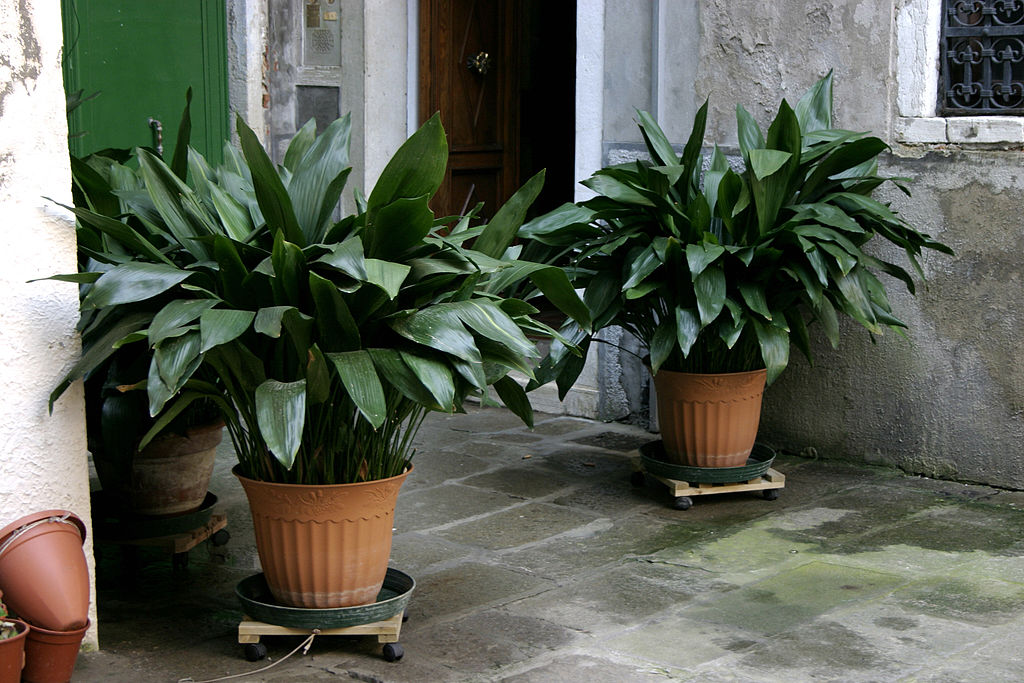
Succulents have become incredibly popular houseplants in recent years, thanks to their unique shapes and ability to thrive in low-maintenance conditions. These plants, which store water in their leaves, are known for their resilience and beauty. However, for cat owners, there is an important question to consider: are succulents toxic to cats? Understanding the potential danger that certain succulents pose to our feline friends is crucial for ensuring their safety and well-being.
We will explore the topic of whether succulents are toxic to cats and provide a comprehensive guide to keeping your furry companion safe around these popular houseplants. We will delve into the specific succulents that are known to be toxic to cats and discuss the symptoms that may occur if your cat ingests these plants. Additionally, we will offer tips on how to prevent your cat from accessing and consuming potentially harmful succulents, as well as alternative cat-friendly plants to consider for your home. By the end of this article, you will have a better understanding of the potential dangers that succulents may pose to your cat and how to create a safe environment for both your pet and your beloved plants.
- No, not all succulents are toxic to cats
- Some common succulents that are safe for cats include echeverias, haworthias, and sedums
- However, there are certain succulents that can be toxic to cats if ingested
- It is important to research and identify which succulents are safe and which are toxic before bringing them into your home
- If you have a cat and want to have succulents, consider opting for non-toxic varieties
- Keep all toxic succulents out of your cat's reach to prevent accidental ingestion
- If you suspect your cat has ingested a toxic succulent, contact your veterinarian immediately
- Symptoms of succulent poisoning in cats can include vomiting, diarrhea, and lethargy
- Always prioritize the safety and well-being of your pets when choosing houseplants
- Frequently Asked Questions
No, not all succulents are toxic to cats
When it comes to owning pets, their safety and well-being are always a top priority. For cat owners who are plant enthusiasts, it's essential to be aware of any potential dangers that certain plants may pose to their furry friends. One popular type of plant that many cat owners adore is succulents. But are succulents toxic to cats?
The answer is not as straightforward as a simple "yes" or "no." While it's true that some succulents do contain toxic compounds that can be harmful to cats if ingested, not all succulents are toxic. It's crucial to have a good understanding of the specific types of succulents that can be dangerous and take necessary precautions to keep your feline companion safe.
Types of Toxic Succulents
Here are some succulents commonly found in households that can be toxic to cats:
- Aloe Vera: This popular succulent contains a substance called aloin, which can cause vomiting, diarrhea, and other gastrointestinal issues if ingested by cats.
- Snake Plant: Also known as Mother-in-Law's Tongue, the snake plant contains saponins, which can cause drooling, nausea, and digestive discomfort in cats.
- Jade Plant: While this beautiful succulent is generally safe, it can cause mild gastrointestinal upset if consumed in large quantities.
Safety Measures for Cat Owners
If you have succulents in your home and also share your space with a curious feline friend, here are some safety measures you can take:
 Unveiling the Causes of White Powdery Substance on Succulents
Unveiling the Causes of White Powdery Substance on Succulents- Research: Before bringing any new succulents into your home, research their toxicity levels and potential dangers to cats. This will help you make informed decisions about which plants are safe to have around your pet.
- Placement: Keep toxic succulents in areas that are inaccessible to your cat. Consider placing them on high shelves, using hanging pots, or using cat-proof barriers to prevent accidental ingestion.
- Supervision: If you notice your cat showing interest in your succulents, closely monitor their behavior to ensure they don't attempt to nibble on the plants.
- Substitute: If you're concerned about the potential risks, consider opting for non-toxic succulents or other pet-friendly plants that won't pose a threat to your cat's health.
By taking these precautions, you can enjoy the beauty of succulents while keeping your cat safe and sound. Remember, it's always better to be safe than sorry when it comes to the well-being of your beloved pets.
Some common succulents that are safe for cats include echeverias, haworthias, and sedums
Many cat owners enjoy having indoor plants to add a touch of greenery to their homes. However, it's important to be aware of which plants can potentially be toxic to our feline friends. One popular type of plant that has gained popularity in recent years is succulents. These drought-resistant plants come in a variety of shapes, sizes, and colors, making them a great choice for any plant lover.
But are succulents safe for cats? The answer is not a straightforward one. While some succulents can be toxic to cats if ingested, there are also many varieties that are considered safe. It's crucial to do your research and know which succulents pose a potential danger to your furry companions.
Safe Succulents for Cats
If you're a cat owner and want to add some succulents to your home, you'll be glad to know that there are several varieties that are safe for cats. Here are a few examples:
- Echeverias: These popular succulents are known for their rosette-shaped leaves and come in various colors. They are non-toxic to cats, making them a great choice for pet owners.
- Haworthias: With their small, spiky leaves, haworthias are another safe option for cat owners. These succulents are easy to care for and can add an interesting texture to your indoor garden.
- Sedums: Sedums, also known as stonecrops, are versatile succulents that come in a wide range of shapes and sizes. They are non-toxic to cats and can thrive both indoors and outdoors.
While these succulents are generally considered safe for cats, it's important to monitor your pets and their behavior around plants. Some cats may still have allergies or sensitivities to certain plants, so it's best to introduce new plants gradually and observe how your cat reacts to them.
Toxic Succulents for Cats
On the other hand, there are succulents that can be toxic to cats if ingested. Some common examples include:
- Aloe Vera: While aloe vera is well-known for its healing properties, it can be toxic to cats if consumed. It's best to keep this plant out of your cat's reach.
- Kalanchoe: This flowering succulent contains toxins that can cause gastrointestinal upset in cats if ingested. It's advisable to keep it away from your furry friends.
- Jade Plant: Also known as money tree or friendship tree, the jade plant can be toxic to cats, leading to vomiting, depression, and other symptoms if eaten.
If you have any of these toxic succulents in your home, it's crucial to keep them in a location that your cat cannot access. Be mindful of any fallen leaves or plant parts as well, as these can still pose a danger if consumed.
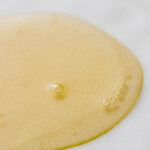 Is Neem Oil Safe for Pest Control on Succulents?
Is Neem Oil Safe for Pest Control on Succulents?While there are many safe succulents for cats, it's essential to be aware of the potential dangers that certain plants can pose. Always research and double-check the toxicity of any succulents before bringing them into your home. Additionally, if you suspect that your cat has ingested a toxic plant or is showing any concerning symptoms, contact your veterinarian immediately for guidance.
However, there are certain succulents that can be toxic to cats if ingested
While succulents are generally known for being low-maintenance and safe for pets, it is important to be aware that not all succulents are harmless to our feline friends. Some varieties of succulents contain toxic compounds that can be harmful to cats if ingested.
It is crucial for cat owners to familiarize themselves with these potentially toxic succulents to ensure the safety and well-being of their furry companions.
Common Toxic Succulents for Cats
 Could Succulent Balls Indicate a Disease?
Could Succulent Balls Indicate a Disease?Here is a list of succulents that are known to be toxic to cats:
- Aloe Vera: Aloe vera contains anthraquinone glycosides, which can cause vomiting, diarrhea, and tremors in cats if ingested.
- Snake Plant (Sansevieria): Snake plants contain saponins, which can cause gastrointestinal upset, drooling, and nausea in cats.
- Jade Plant (Crassula ovata): Jade plants contain a toxic compound called bufadienolides, which can cause vomiting, depression, and a slow heart rate in cats.
- Pencil Cactus (Euphorbia tirucalli): The milky sap of pencil cactus contains toxins that can cause severe gastrointestinal issues, including vomiting and diarrhea, if ingested by cats.
It is important to note that this list is not exhaustive, and there may be other succulents that are toxic to cats as well. Therefore, it is always a good idea to research the specific succulent you have and double-check its safety for cats.
Precautions to Keep Your Cat Safe
If you have succulents in your home and also own a cat, it is essential to take precautions to prevent any accidental ingestion:
- Keep plants out of reach: Place your succulents in areas that are inaccessible to cats, such as high shelves or hanging planters.
- Monitor playtime: Supervise your cat's playtime to ensure they do not nibble on any potentially toxic plants.
- Use deterrents: Apply bitter-tasting sprays or place aluminum foil around your succulents to discourage your cat from approaching them.
- Consider cat-friendly alternatives: If you are concerned about the safety of your cat, opt for cat-friendly plants such as catnip or cat grass.
By taking these precautions, you can minimize the risk of your cat coming into contact with toxic succulents and ensure their well-being.
It is important to research and identify which succulents are safe and which are toxic before bringing them into your home
 Can Tiny Black Bugs on Succulents Cause Harm?
Can Tiny Black Bugs on Succulents Cause Harm?When it comes to adding plants to your home, it's crucial to consider the safety of your furry friends. Cats, in particular, have a tendency to nibble on plants, which can lead to potential health issues. Succulents, with their unique shapes and vibrant colors, have become increasingly popular as indoor plants. However, not all succulents are safe for cats.
Why are some succulents toxic to cats?
Many succulents contain substances that are toxic to cats if ingested. These toxins can cause a range of symptoms, from mild gastric upset to more severe reactions. The specific toxins present in succulents can vary, but some common ones include saponins, oxalates, and alkaloids.
Identifying safe succulents
Before bringing a succulent into your home, it's crucial to research and identify which varieties are safe for cats. While it's not possible to provide an exhaustive list here, some popular cat-safe succulents include:
- Haworthia: These small, rosette-shaped succulents are non-toxic to cats and come in a variety of striking patterns.
- Spider Plant (Chlorophytum comosum): While not a succulent in the traditional sense, spider plants are safe for cats and add a lush touch to any space.
- Christmas Cactus (Schlumbergera): This festive succulent blooms during the holiday season and is safe for cats.
Avoiding toxic succulents
On the other hand, some succulents are known to be toxic to cats and should be avoided. These include:
 Can Eating a Succulent Plant Harm My Dog?
Can Eating a Succulent Plant Harm My Dog?- Aloe Vera: Although renowned for its healing properties, aloe vera can cause vomiting and diarrhea in cats.
- Snake Plant (Sansevieria): Snake plants contain saponins, which can cause gastrointestinal upset and other symptoms in cats.
- Jade Plant (Crassula ovata): While popular and easy to care for, jade plants can be toxic to cats if ingested.
Take precautions
If you have succulents that are safe for cats, it's still important to take precautions. Place them out of reach, either by hanging them or using elevated shelves. Additionally, monitor your cat's behavior around the plants and seek veterinary assistance if you notice any signs of illness.
In conclusion
While succulents can add beauty and life to your home, it's crucial to prioritize the safety of your feline companions. Researching and identifying cat-safe succulents, as well as avoiding toxic varieties, will ensure a harmonious environment for both you and your beloved pets.
If you have a cat and want to have succulents, consider opting for non-toxic varieties
Having plants in your home can bring a touch of nature and beauty to your living space. Succulents, with their unique and captivating shapes, have become increasingly popular among plant enthusiasts. However, if you are a cat owner, it is crucial to be aware of the potential dangers that certain succulents can pose to your furry friend.
Are succulents toxic to cats?
 Will Neem Oil Have Adverse Effects on My Succulents?
Will Neem Oil Have Adverse Effects on My Succulents?The answer is not a straightforward one. While not all succulents are toxic to cats, some varieties can be harmful if ingested. It is important to understand which succulents are safe to have around your feline companion and which ones should be avoided.
Non-toxic succulents for cats
If you want to have succulents in your home without worrying about the safety of your cat, there are several non-toxic options to consider. These include:
- Haworthia: This popular succulent is safe for cats and has striking rosette-shaped leaves.
- Christmas Cactus: Also known as Schlumbergera, this festive succulent is non-toxic to cats and adds a splash of color during the holiday season.
- Spider Plant: Although not a succulent, spider plants are a great alternative. They are non-toxic to cats and feature long, arching leaves that add a touch of elegance to any space.
Toxic succulents to avoid
While some succulents are safe for cats, there are certain varieties that can be toxic and should be avoided. These include:
- Aloe Vera: This popular succulent, known for its medicinal properties, can cause vomiting, diarrhea, and even tremors in cats if ingested.
- Jade Plant: Also known as Crassula ovata, this succulent can cause vomiting, depression, and a slow heart rate if consumed by cats.
- Pencil Cactus: This unique succulent, with its pencil-like stems, can be extremely toxic to cats if ingested, leading to severe gastrointestinal issues.
It is important to note that even non-toxic succulents can cause mild stomach upset if ingested in large quantities. Therefore, it is always a good idea to monitor your cat's interaction with plants and consult with a veterinarian if you notice any unusual behavior or symptoms.
If you have a cat and want to incorporate succulents into your home, it is essential to choose non-toxic varieties to ensure the safety and well-being of your furry friend. By being aware of the potential dangers and taking necessary precautions, you can enjoy the beauty of succulents without compromising your cat's health.
Keep all toxic succulents out of your cat's reach to prevent accidental ingestion
When it comes to creating an indoor garden, succulents have become a popular choice among plant enthusiasts. Their unique shapes, vibrant colors, and low-maintenance nature make them a great addition to any home. However, it's important to be aware that not all succulents are safe for our furry friends.
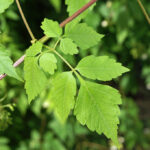 Common White Diseases: Identifying and Treating Succulent Afflictions
Common White Diseases: Identifying and Treating Succulent AfflictionsAre succulents toxic to cats?
The answer is not a simple yes or no. While many succulents are considered safe for cats, there are several varieties that can pose a potential danger if ingested. Certain succulents contain toxic compounds that can cause various health issues in cats, ranging from mild gastrointestinal discomfort to more severe symptoms.
Common toxic succulents
It's essential to familiarize yourself with the types of succulents that can be toxic to cats. Some common succulents that are known to be toxic include:
- Aloe vera: While aloe vera is popular for its healing properties for humans, it can cause vomiting, diarrhea, and changes in urine color if ingested by cats.
- Jade plant (Crassula ovata): This commonly found succulent contains a substance called bufadienolides, which can cause vomiting, depression, and even abnormal heart rhythms in cats.
- Snake plant (Sansevieria): Snake plants are known for their air-purifying abilities, but they can be toxic to cats if ingested. They contain saponins, which can cause gastrointestinal upset.
Preventing accidental ingestion
To ensure the safety of your feline friend, it's crucial to take preventive measures:
- Keep toxic succulents out of reach: Place toxic succulents in areas that are inaccessible to your cat, such as high shelves or hanging planters.
- Know your plants: Research the toxicity level of each succulent you own and remove any that are harmful to cats.
- Observe your cat: Keep an eye on your cat's behavior around plants and intervene if you notice any attempts to nibble on them.
- Provide safe alternatives: Consider growing cat-friendly plants, such as catnip or cat grass, to divert your cat's attention away from the toxic succulents.
What to do if your cat ingests a toxic succulent?
 Understanding the Reason for White Fuzz on Succulent Leaves
Understanding the Reason for White Fuzz on Succulent LeavesIf you suspect that your cat has ingested a toxic succulent or is exhibiting any unusual symptoms, it's essential to seek veterinary care immediately. Be prepared to provide information about the plant and any observed symptoms, as this will help your veterinarian determine the appropriate course of action.
Conclusion
While not all succulents are toxic to cats, it's crucial to be cautious and keep potentially harmful plants out of their reach. By understanding which succulents are toxic and taking preventive measures, you can create a safe and enjoyable environment for both your cat and your beloved plant collection.
If you suspect your cat has ingested a toxic succulent, contact your veterinarian immediately
Succulents have become increasingly popular houseplants due to their unique appearance and low maintenance requirements. However, if you are a cat owner, it is important to be aware of the potential dangers these plants may pose to your furry friend. While not all succulents are toxic to cats, some can cause mild to severe health issues if ingested.
Identifying Toxic Succulents
It is crucial to know which succulents are toxic to cats to ensure their safety. Here are some common succulent varieties that are known to be toxic:
- Aloe Vera: While aloe vera is known for its healing properties in humans, it can cause vomiting, diarrhea, and tremors in cats.
- Jade Plant: Also known as Crassula ovata, the jade plant can cause vomiting, depression, and even a slow heart rate if ingested by cats.
- Pencil Cactus: This succulent, scientifically known as Euphorbia tirucalli, contains a milky sap that can irritate a cat's skin and mucous membranes, leading to drooling, vomiting, and diarrhea.
It is important to note that this is not an exhaustive list, and there are other toxic succulents to be cautious of. If you have any doubts about a specific succulent in your home, consult a veterinarian or do thorough research before introducing it to your cat's environment.
Recognizing Symptoms of Succulent Poisoning
Ingesting a toxic succulent can lead to various symptoms in cats. Keep an eye out for the following signs that may indicate succulent poisoning:
 Identifying & Treating Common White Bugs in Succulent Plants
Identifying & Treating Common White Bugs in Succulent Plants- Gastrointestinal Issues: Vomiting, diarrhea, and loss of appetite are common symptoms of succulent toxicity in cats.
- Oral Irritation: Excessive drooling, pawing at the mouth, and difficulty swallowing can indicate that a cat has come into contact with a toxic succulent.
- Behavioral Changes: Lethargy, depression, and changes in activity levels may occur if a cat has ingested a toxic succulent.
If you suspect that your cat has ingested a toxic succulent or is displaying any unusual symptoms, it is crucial to seek veterinary assistance immediately. Time is of the essence when it comes to treating succulent poisoning in cats, and prompt action can make a significant difference in their recovery.
Preventing Succulent Poisoning in Cats
To ensure the safety of your cat, take the following preventative measures:
- Choose Non-Toxic Succulents: Opt for cat-friendly succulent varieties, such as Haworthia or Echeveria, that are safe for feline companions.
- Secure Your Plants: Keep succulents out of your cat's reach by placing them in areas that are inaccessible or using hanging planters.
- Monitor Indoor Plants: Regularly inspect your succulents for any signs of damage or fallen leaves that could attract your cat's attention.
By being proactive and knowledgeable about toxic succulents, you can create a safe environment for your cat while still enjoying the beauty of these captivating plants.
Symptoms of succulent poisoning in cats can include vomiting, diarrhea, and lethargy
It is important for cat owners to be aware of the potential dangers that certain plants may pose to their furry friends. One such concern is whether succulents are toxic to cats. While succulents are popular houseplants due to their unique appearance and low maintenance care, some varieties can indeed be toxic to cats if ingested.
Symptoms of succulent poisoning in cats can include vomiting, diarrhea, and lethargy. These symptoms may occur within a few hours of ingestion and can vary in severity depending on the type and amount of succulent consumed. It is crucial to keep a close eye on your cat if you suspect they have ingested any part of a succulent plant.
When it comes to succulents, it is essential to understand that not all varieties are toxic to cats. Some succulents, such as Echeveria and Haworthia, are considered non-toxic and generally safe if accidentally consumed by cats. However, other succulents, including certain types of aloe vera, jade plants, and snake plants, can be toxic and potentially harmful to cats.
Prevention is key in keeping your cat safe from succulent poisoning. Here are a few steps you can take to minimize the risk:
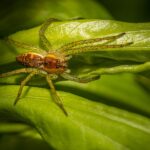 Are Tiny Bugs Harmful to Succulent Health?
Are Tiny Bugs Harmful to Succulent Health?- Research before purchasing: Before bringing any new succulent plants into your home, make sure to research their toxicity level for cats. This way, you can avoid purchasing any potentially hazardous varieties.
- Keep plants out of reach: Place your succulents in areas that are inaccessible to your cat, such as high shelves or hanging planters. This will help prevent accidental ingestion.
- Monitor your cat's behavior: Keep a watchful eye on your cat's behavior around plants. If you notice any signs of curiosity or attempts to nibble on the succulents, take immediate action to remove the plant from their reach.
- Provide safe alternatives: To satisfy your cat's natural inclination to chew on plants, consider providing cat-safe grasses or herbs as an alternative. These can be found at pet stores and are specifically designed for cats to nibble on safely.
In case of any suspected succulent poisoning, it is crucial to contact your veterinarian immediately. They will be able to provide guidance and recommend appropriate treatment based on the specific situation. Remember, it's always better to be safe than sorry when it comes to your cat's well-being.
Always prioritize the safety and well-being of your pets when choosing houseplants
It is essential to prioritize the safety and well-being of our furry friends when selecting houseplants for our homes.
One common concern among pet owners is whether succulents are toxic to cats. While succulents have become increasingly popular due to their low maintenance and unique appearance, it is crucial to understand the potential dangers they may pose to our feline companions.
Understanding the Potential Danger
Many succulents contain toxic substances that can be harmful to cats if ingested. These toxins can cause a range of symptoms, from mild gastrointestinal upset to more severe complications. It is important to be aware of the specific succulent species that may pose a risk to your cat.
Some common succulents that are toxic to cats include:
- Aloe Vera: This popular succulent contains saponins, which can cause vomiting, diarrhea, and even tremors if ingested by cats.
- Euphorbia: Also known as "spurge," Euphorbia plants contain a milky sap that can cause skin irritation and gastrointestinal issues in cats.
- Kalanchoe: While known for its vibrant blooms, Kalanchoe contains cardiac glycosides that can lead to abnormal heart rhythms and other cardiovascular problems in cats.
These are just a few examples, and there are other succulents that can be potentially toxic to cats. It is always advisable to research the specific plants you have or plan to bring into your home to ensure they are safe for your feline friends.
Precautions to Keep Your Cat Safe
To prevent any potential harm to your cat, here are some precautions you can take:
- Research: Before purchasing a succulent, research its toxicity level and potential effects on cats. Opt for non-toxic alternatives if you have concerns.
- Placement: Keep your succulents in areas that are inaccessible to cats, such as high shelves or hanging planters.
- Supervision: When possible, supervise your cat's interactions with plants to prevent any accidental ingestion.
- Consult a veterinarian: If you suspect your cat has ingested a toxic succulent or is displaying any concerning symptoms, contact your veterinarian immediately.
Remember, each cat is unique, and their tolerance to certain plants may vary. It is always better to err on the side of caution and prioritize your cat's safety by avoiding potentially toxic succulents altogether.
By understanding the potential dangers and taking necessary precautions, you can create a cat-friendly environment while still enjoying the beauty of succulents in your home.
Frequently Asked Questions
1. Are all succulents toxic to cats?
No, not all succulents are toxic to cats. However, it's important to research and identify specific succulents that may be harmful to your furry friend.
2. What are some common succulents that are toxic to cats?
Some common succulents that are toxic to cats include Jade Plants (Crassula ovata), Aloe Vera, and Echeveria.
3. What are the symptoms of succulent poisoning in cats?
Symptoms of succulent poisoning in cats may include vomiting, diarrhea, drooling, lethargy, and in severe cases, difficulty breathing or organ failure.
4. What should I do if I suspect my cat has ingested a toxic succulent?
If you suspect your cat has ingested a toxic succulent, it is important to contact your veterinarian immediately. They will be able to provide proper guidance and treatment for your cat's well-being.
If you want to read more articles similar to Are Succulents Toxic to Cats? Understanding the Potential Danger, you can visit the Pests and Diseases category.

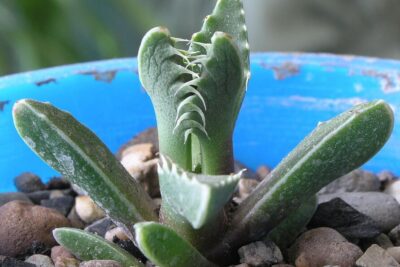

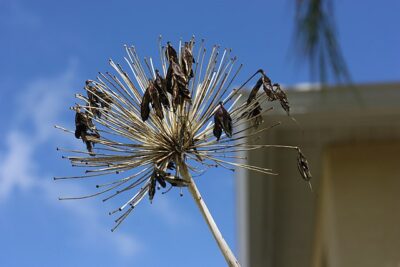

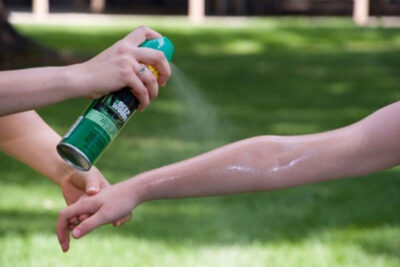
You Must Read